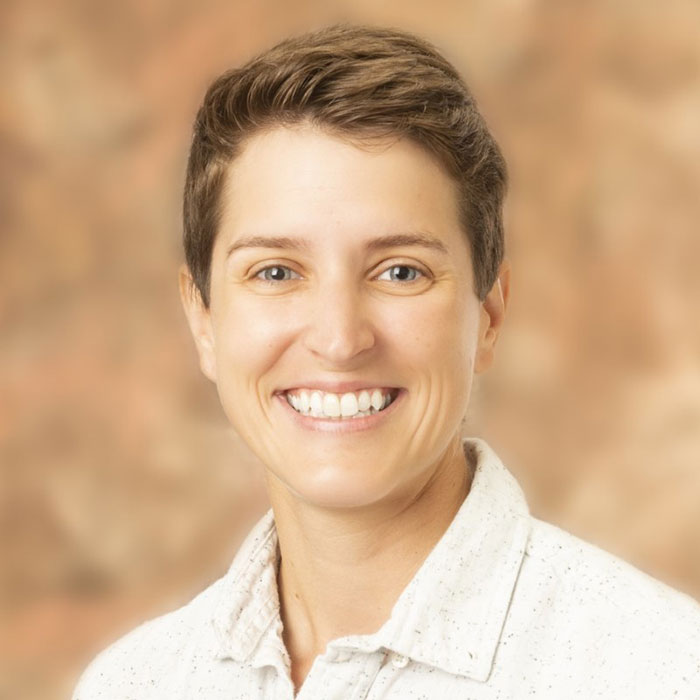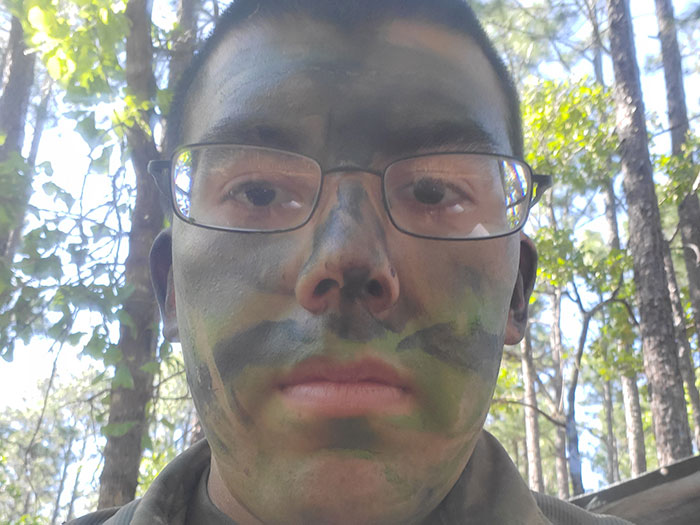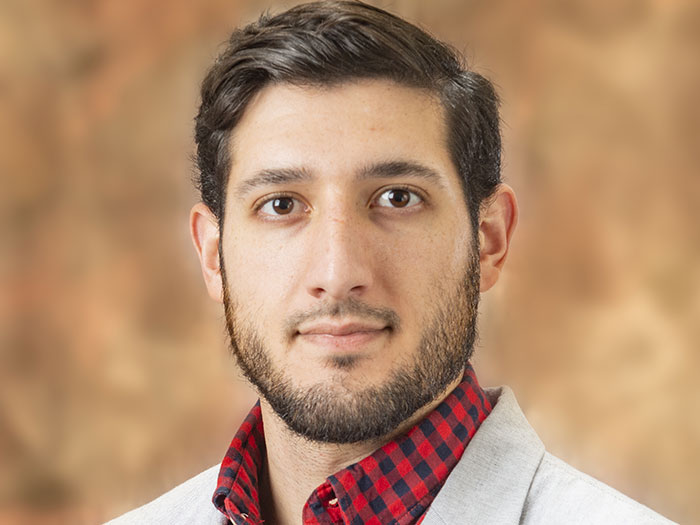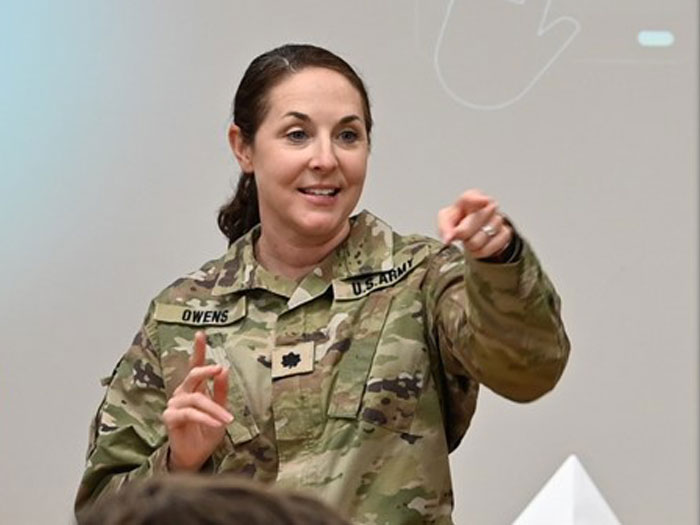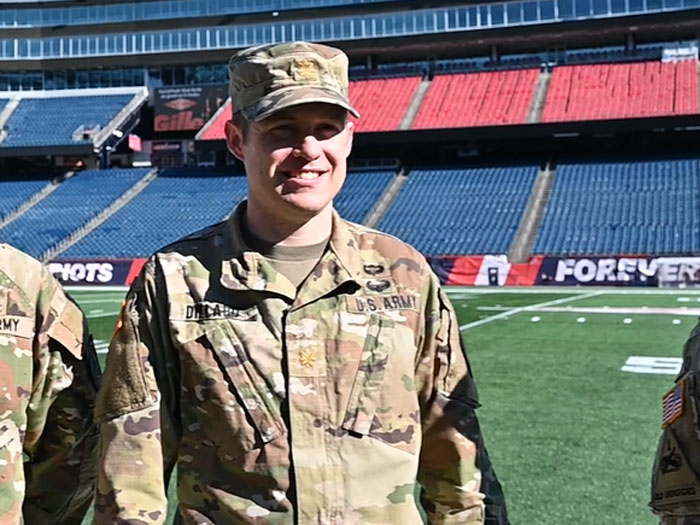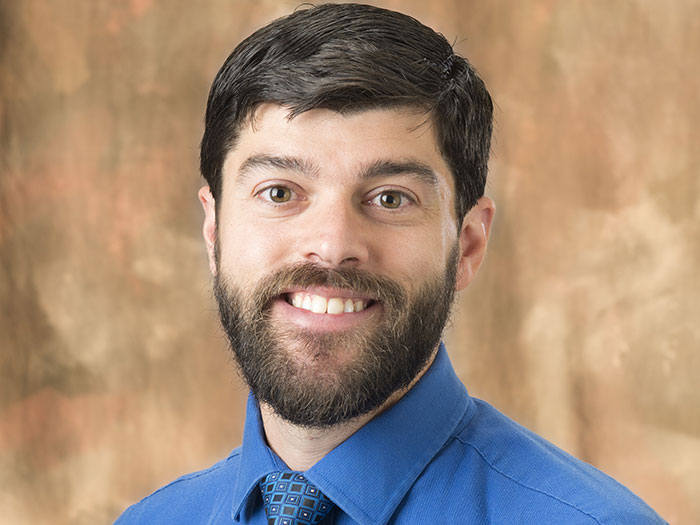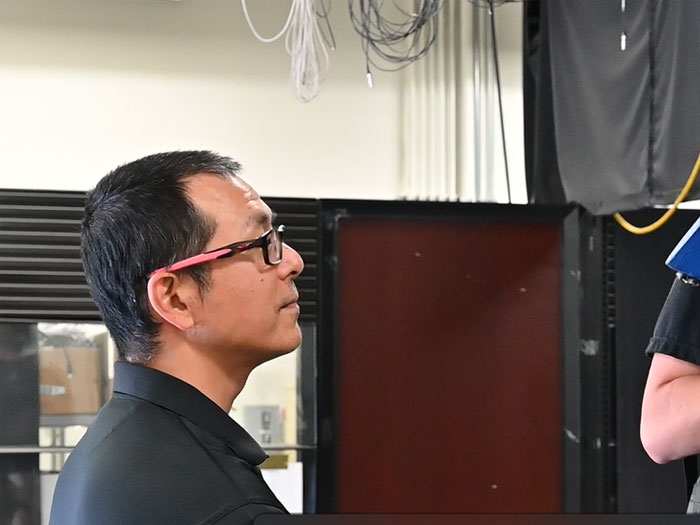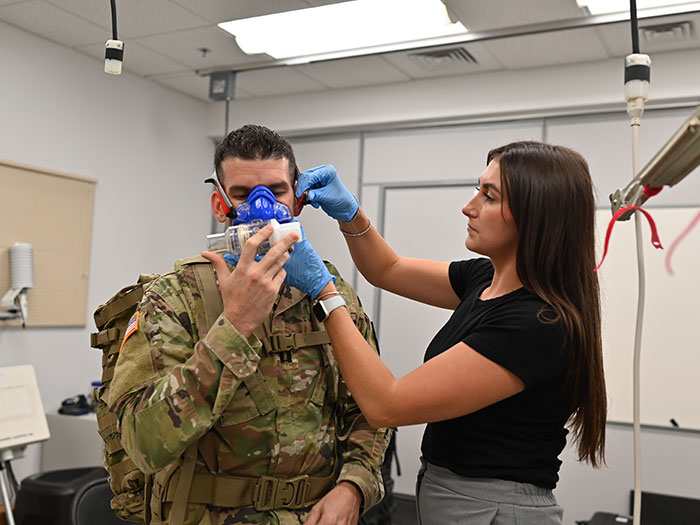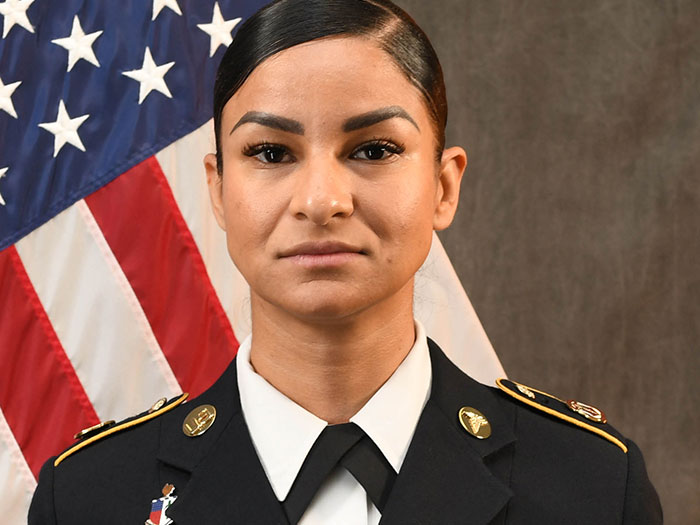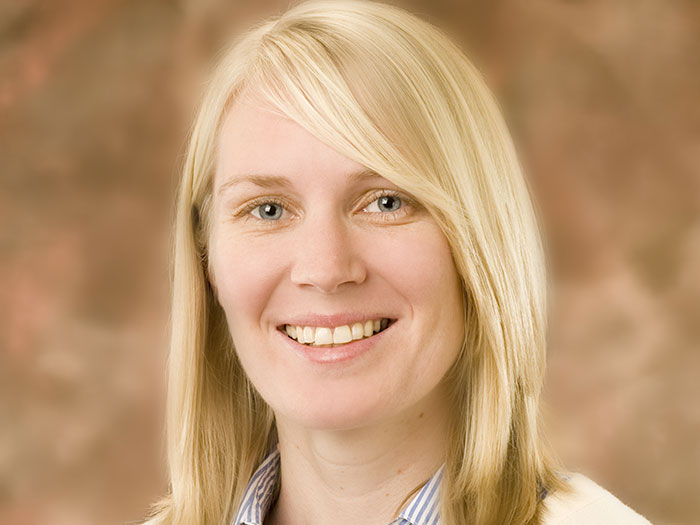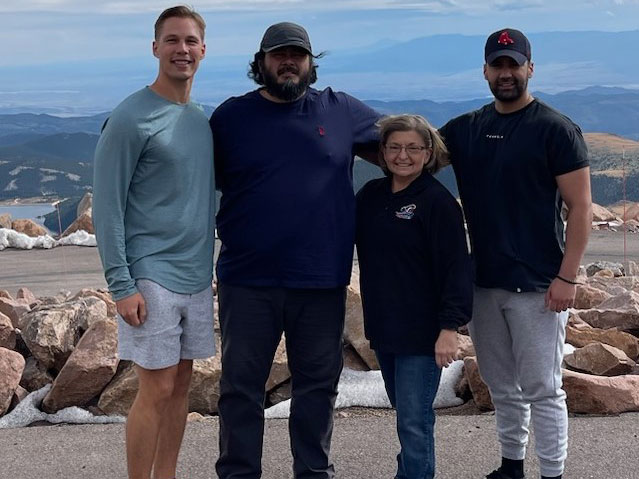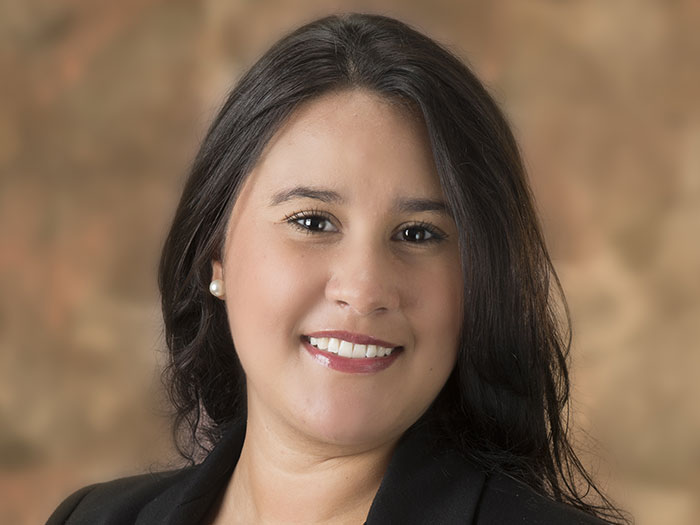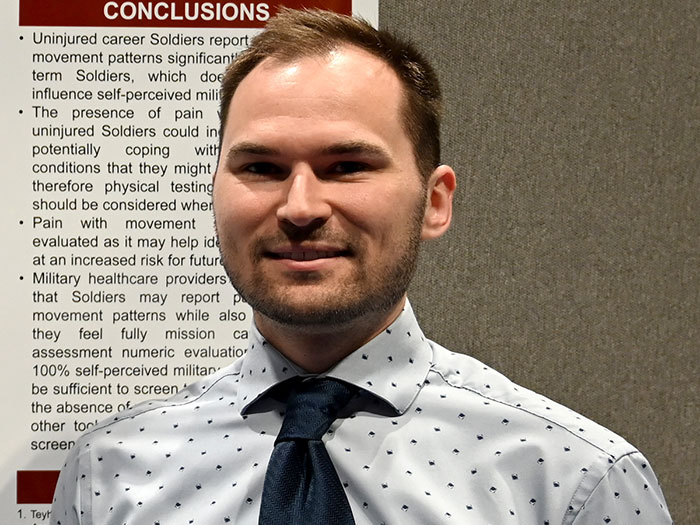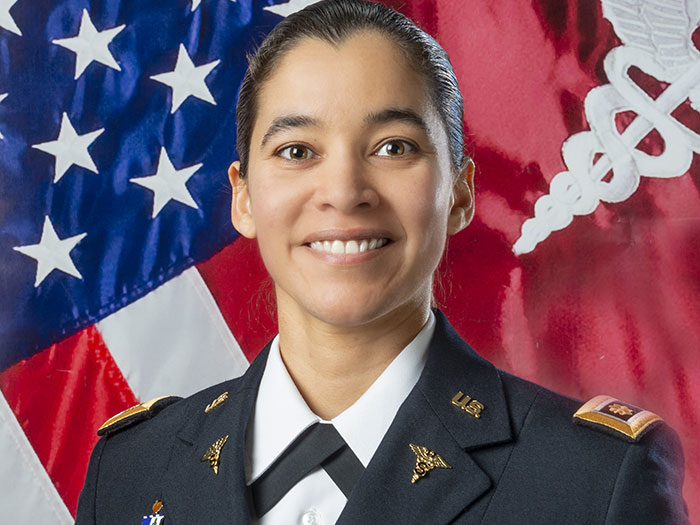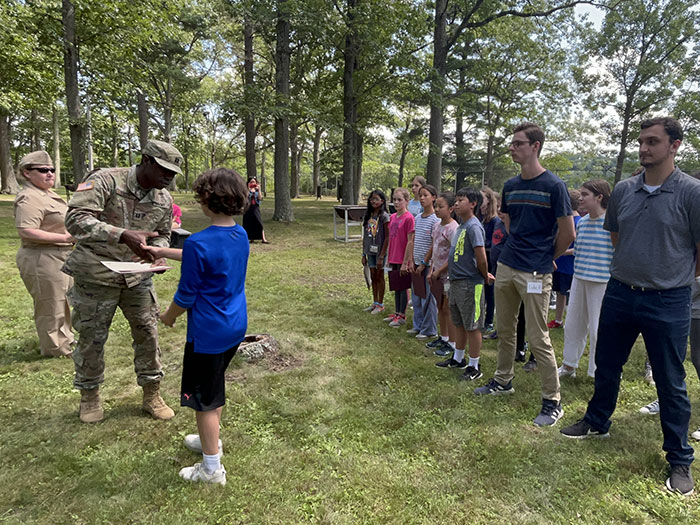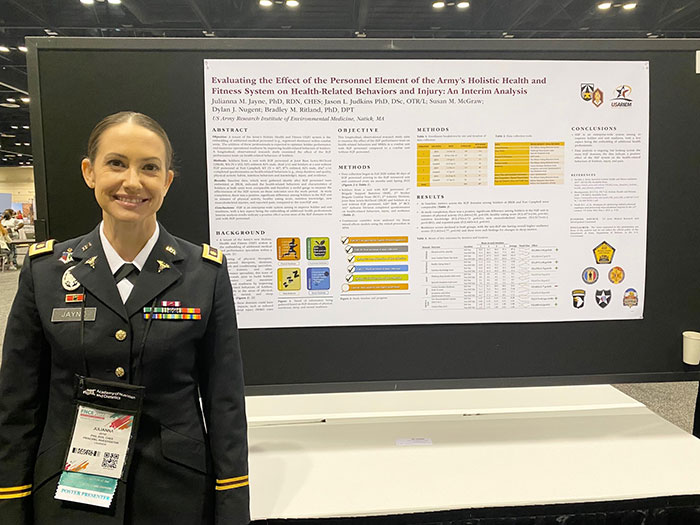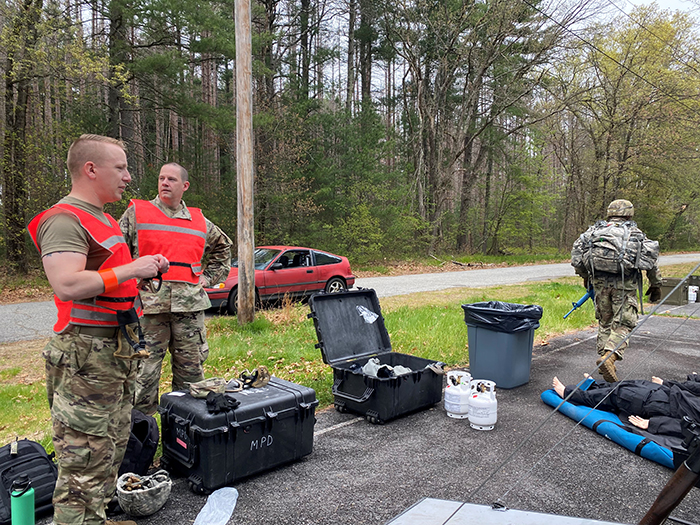Behind the Science with Afton Seeley, Ph.D., Environmental Research Physiologist
How long have you been at the U.S. Army Research Institute of Environmental Medicine?
I arrived at USARIEM in June 2020 as an Oak Ridge Institute for Science and Education post-doctoral research fellow supporting the Thermal Mountain Medicine Division. After two years, in September 2022, I transitioned to a Federal Civilian Research Physiologist role within TMMD, and now have been here for just under four years.
How did you become interested in Soldier Nutrition and Performance?
When I read this question and contemplate typical responses, some part of me lands on the thought that perhaps others may be drawn to Soldier health and performance because they grew up in a military family. For me, that couldn't be farther from the truth. Yet, growing up, I was keenly drawn to the military and the humans that compose it.
After learning about the seemingly infinite skill sets facilitated by the Army and the grit and resolve needed to undergo some of the most arduous training and mission requirements, I was hooked. I eventually enlisted in the Michigan Army National Guard in 2014 and transferred to the Florida Army National Guard thereafter with the simple intention of leveraging my education in physiology to benefit the Army. While unable to successfully navigate to a physiology role while enlisted, I was able to find another path as a Federal Civilian.
In ultimate transparency, if we ask women and men to sacrifice their time, personal freedoms, and even life or limb to defend our country, then we owe it to them to help them complete their mission tasks as well, as safely, and as science supported as possible.
What projects are you currently working on?
My current projects focus on:
- Better understanding hypothermia risk in environments where environmental cold exposure with wet clothing is unavoidable.
- Determining the usefulness of repeated cold-water immersion as a cross adaptative stimulus to improve physical performance and reduce Acute Mountain Sickness symptoms at high altitude.
- Developing countermeasures to offset cold-induced decrements in manual dexterity and reduce the risk of peripheral cold injury.
What aspects of your job do you love and find most gratifying?
Providing mentorship to junior staff is probably the most gratifying part of my day-to-day. There is something to be said for being afforded the opportunity to help guide a colleague through the introspection necessary to bolster their strengths and constructively highlight their weaknesses. To see a team dynamic 'click' real time during data collection as it relies on complementary strengths is a thing of beauty.
What part of your job do you find to be the most difficult?
Perpetually adjusted targets and the sheer number of logistical moving pieces involved in strong scientific research can at times be difficult to juggle. Team driven science, a building full of science expertise, and a copious amount of caffeine does wonders to offset these snags.
When you are not at the Institute, what do you like to do for fun?
When not at work, you can typically find me doing one of two things: moving my body in space and time or standing nearly perfectly still in a body of water, alongside my wife, trying my best to catch an ever-elusive fish.
2025



2024
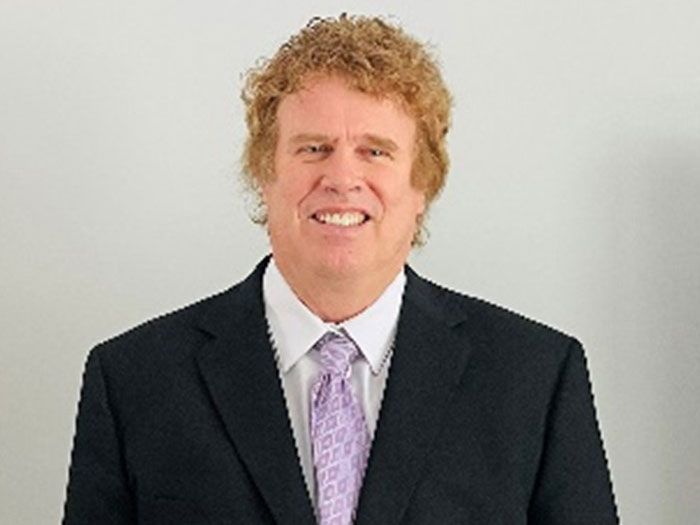

2023
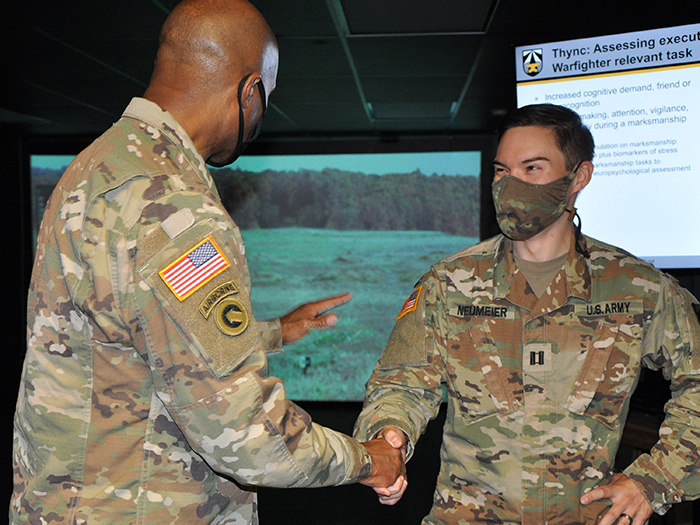
 An official website of the United States government
An official website of the United States government
 ) or https:// means you've safely connected to the .mil website. Share sensitive information only on official, secure websites.
) or https:// means you've safely connected to the .mil website. Share sensitive information only on official, secure websites.














